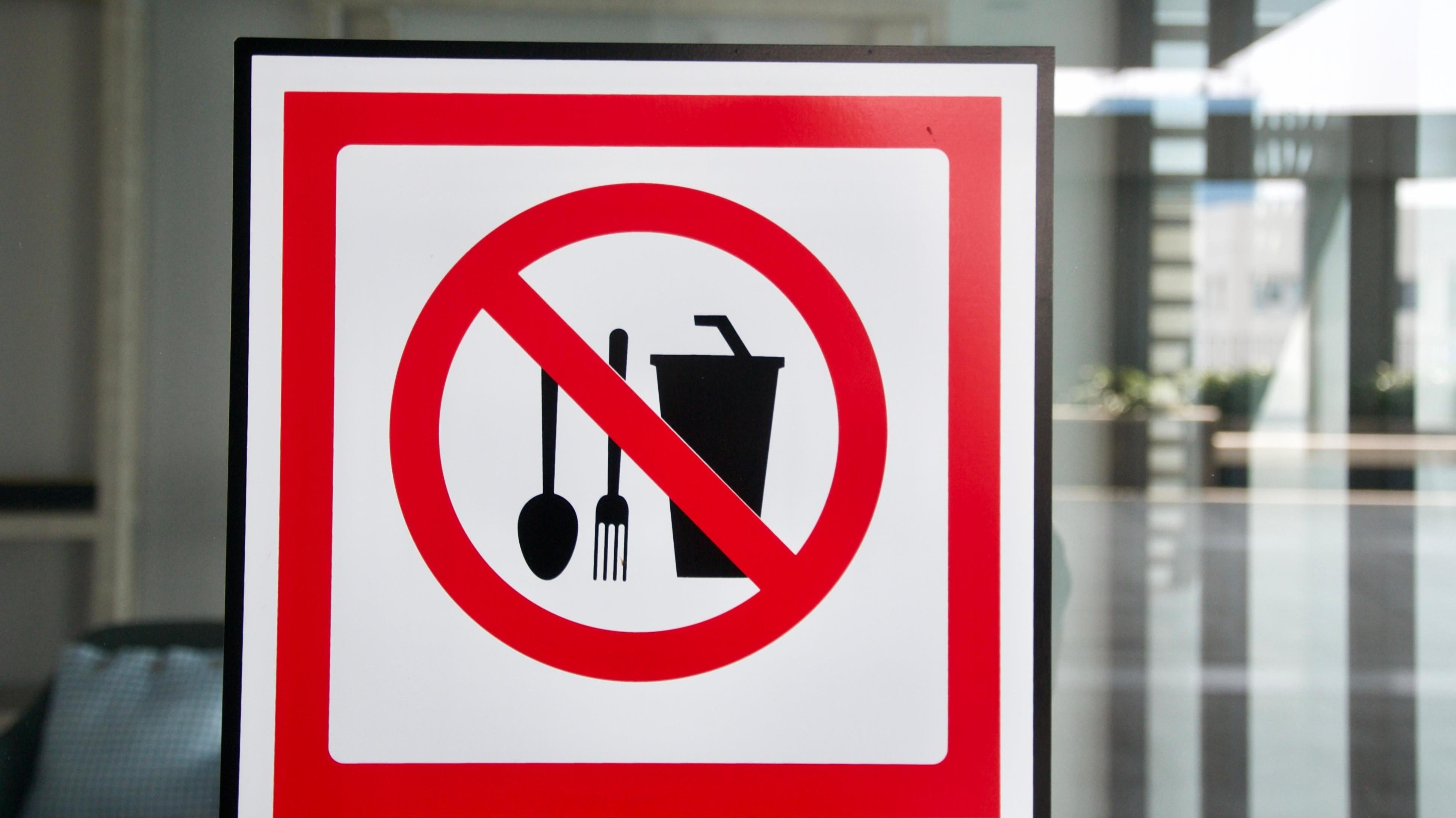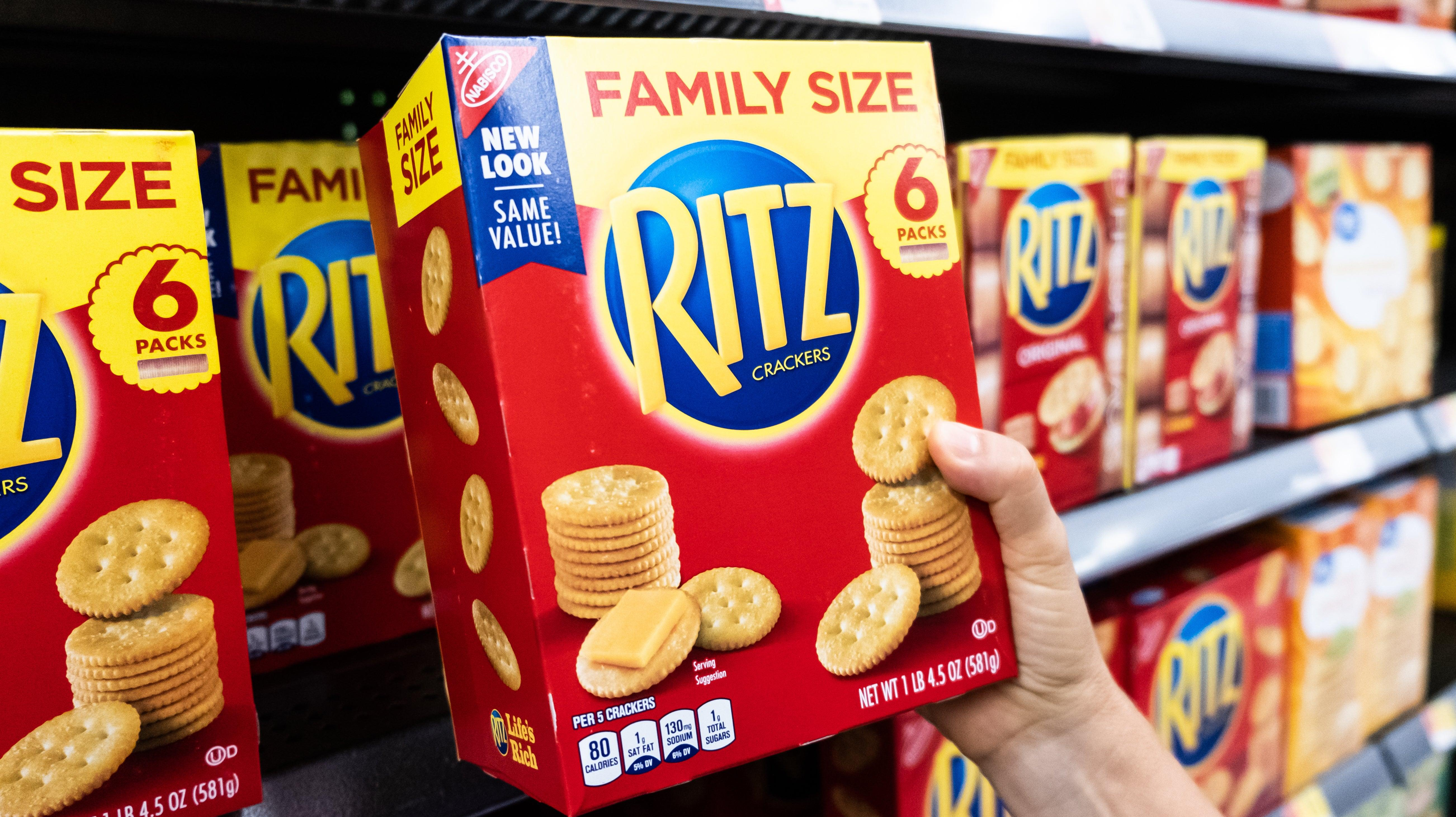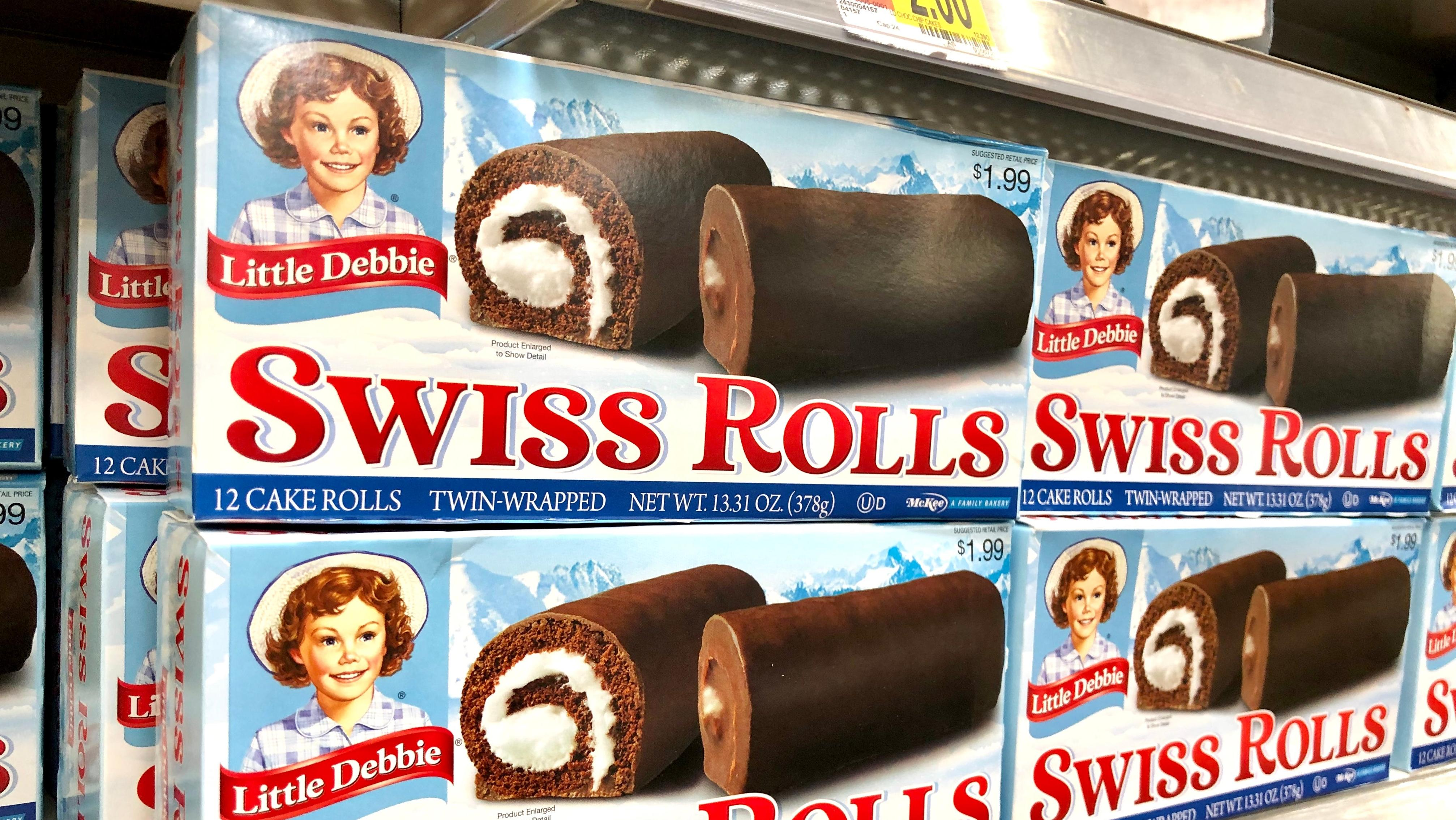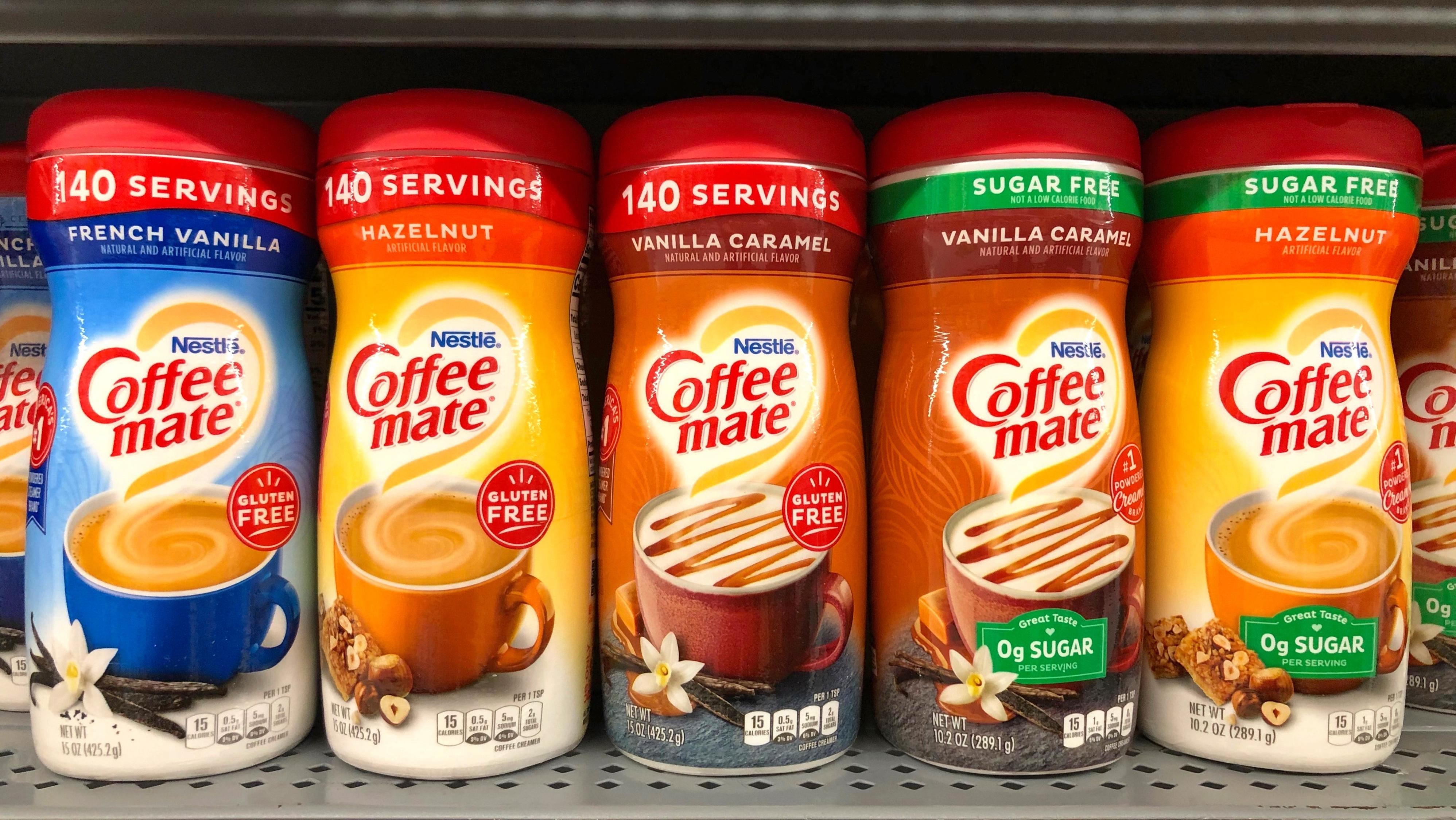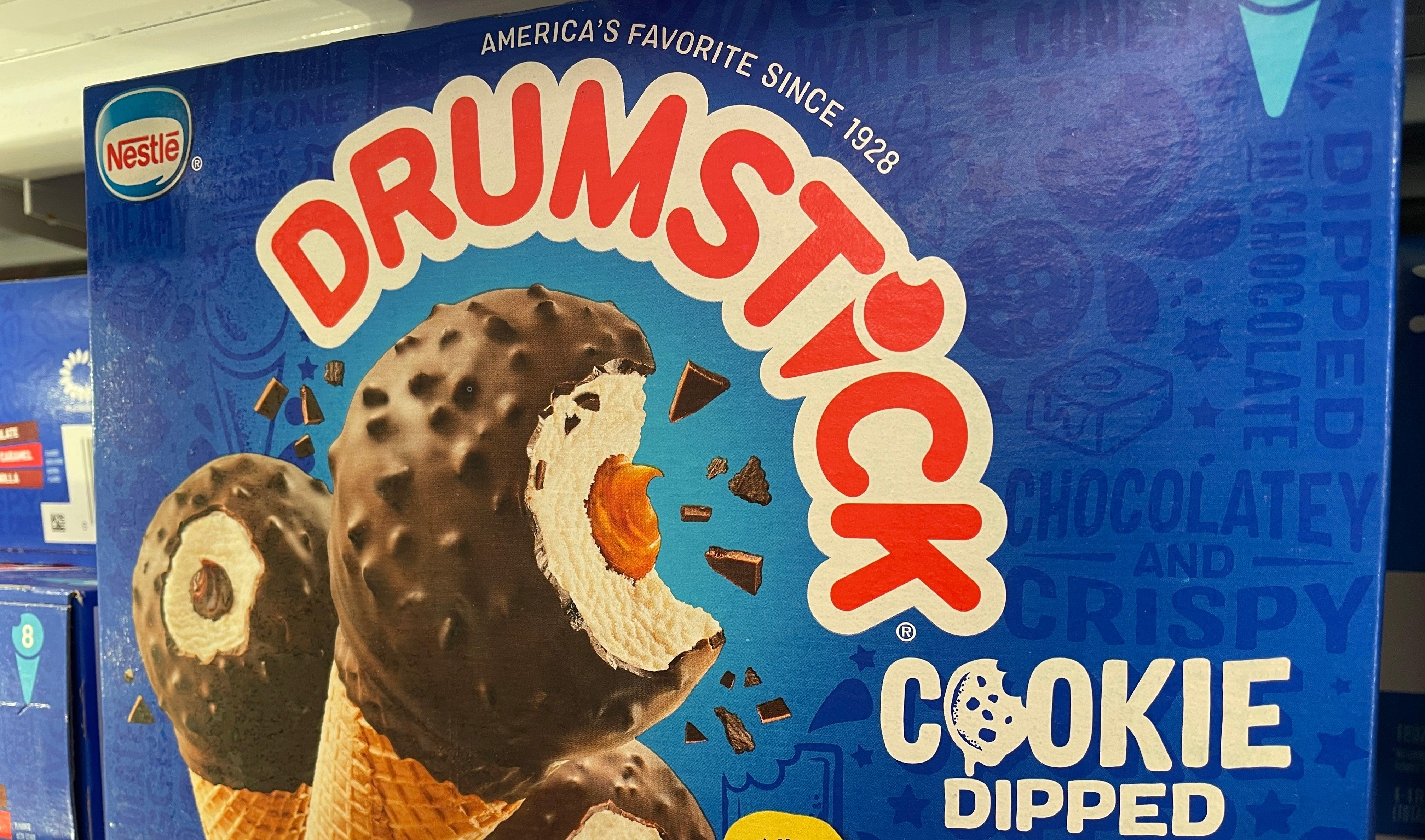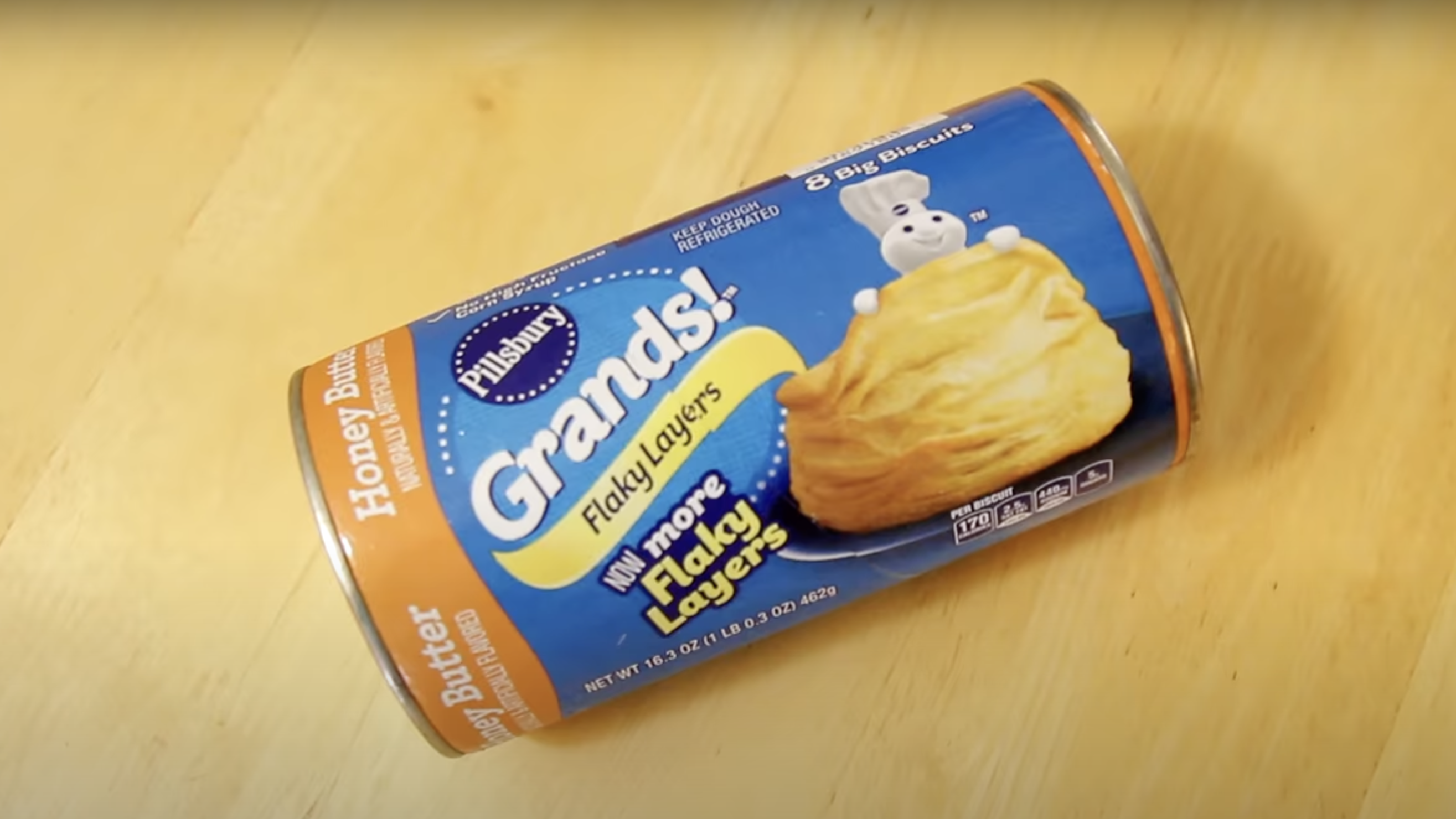7 American Snacks Banned In Other Countries
Find out why Little Debbie's smiling face isn't welcome abroad.
There are many reasons to travel the world: the natural beauty, the many museums, and of course, the cuisine. But sometimes we take for granted all that we have available here at home, including many foods permitted in the United States that aren't allowed to be sold elsewhere.
What follows are some very "American" treats you can't find in other countries because, well, they're banned—each for slightly different reasons and according to differing regulations. It's worth knowing before you go, in case you get hit with, say, a huge Ritz craving in the middle of your European vacation. Read on for seven foods you can't find outside the U.S.
Ritz crackers
Ritz crackers might seem a little too humdrum to make it onto a fancy charcuterie board, but think about it this way: they're pretty "exclusive" in that you'd be hard pressed to find certain varieties of these crackers in Switzerland, Austria, Hungary, Iceland, Norway, and Denmark. Some Ritz products contain partially hydrogenated cottonseed oil, which is a trans fat that has been linked to poor heart health, reports Healthline. The FDA has actually ruled these types of oils to be "not generally recognized as safe," but certain loopholes allows for the continued manufacture of products that contain them.
Chewing gum
If the Willy Wonka & the Chocolate Factory taught us anything, it's that chewing the wrong gum can lead to you becoming a blueberry. But they don't have to worry about that in Singapore. Chewing gum has been banned in Singapore since 1992, BBC News explains. Though there are some exceptions (like in the case of Nicotine gum), you likely won't find anyone walking around chewing gum. The ban was mainly implemented as an effort to keep public streets and communities free of dirty old gum stuck all over the pavement.
Little Debbie Swiss Rolls
The Little Debbie brand offers a number of tasty snack foods including cookies, brownies, and cream-swirled cake rolls. Unfortunately, if you happen to be traveling to Norway or Austria you will not find Little Debbie's Swiss Rolls on store shelves. The rolls contain food dyes Yellow 5 and Red 40, which contain potential carcinogens, and the European Union requires products containing those dyes to have warning labels, reports The New York Times. However, Austria and Norway took things one step further and just outright banned the snack.
Coffee Mate
Coffee Mate—coffee's perfect mate, per its slogan—is not so tied to coffee culture in certain parts of Europe, including Austria, Hungary, and multiple Scandinavian countries, explains Mashed. The reason you won't find Coffee Mate's non-dairy creamers in those countries is because they contain hydrogenated oils. For the same reason Ritz Crackers have limited availability outside the United States, these creamers contain a trans fat linked to poor heart health, which keeps such products off the shelves. If you're traveling, try falling in love with black coffee.
Froot Loops
The sugary cereals of our childhoods have always been met with opposition when it comes to their nutritional value, but one specific and very colorful cereal lost its battle in Norway, France, Finland, and Austria, says Newsweek. Froot Loops, a Kellogg's brand, contains a number of food dyes that are not allowed in products in these countries, including the previously mentioned Yellow 5 and Red 40. Plus, "hydrogenated coconut, soybean and/or cottonseed oil" is also listed as one of the colorful cereal's ingredients.
Drumstick ice cream
The ice cream truck treat with the generous extra helping of chocolate within its cone contains a sneaky ingredient prohibited by the European Union, reports Stacker. Drumsticks contain carrageenan, which can negatively affect the digestive system. But here's the catch: You won't actually find carrageenan on the Drumstick ingredient list. That's because carrageenan isn't listed on any product's ingredient panel when it is "used as a processing aid or included in ingredients used in the final product," like the cream used for ice cream, explains The Cornucopia Institute.
Pillsbury biscuits & crescent rolls
Pillsbury's buttery, flaky biscuits and crescent rolls contain hydrogenated oils, which are banned in many countries. To think that each of those delicious little layers contain potentially hazardous oils that might mess with your heart health is heartbreaking to think about. While the European Union has every right to attempt to protect consumers from harmful ingredients, I can confidently say that here in the United States, I am willing to risk it for the biscuit.
